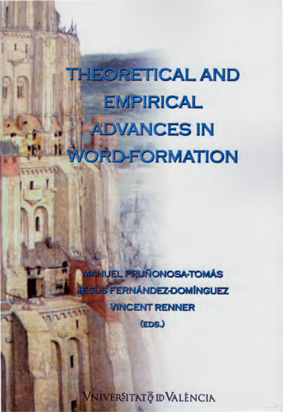El préstamo lingüístico, uno de los principales procedimientos de creación neológica
DOI:
https://doi.org/10.7203/qfilologia.18.3284Paraules clau:
préstamo lingu?ístico, neologismo, neología, diccionario, transferencia Resum
Resum
En el presente trabajo pretendemos demostrar que el préstamo lingu?ístico es uno de los principales procedimientos de creación neológica tanto en el pasado como en la actualidad. Los préstamos, aunque con las reticencias lógicas por el empobrecimiento o arrinconamiento que el léxico patrimonial pueda sufrir, siempre han estado presentes en las lenguas. Prueba de ello es su aparición ya en el Tesoro de la lengua castellana o española de Sebastián de Covarrubias, primer diccionario monolingu?e con el que cuenta nuestra lengua.
 Descàrregues
Descàrregues
Descàrregues
Com citar
-
Resum2928
-
PDF (Español)7183
-
PDF 205
-
PDF3519
Número
Secció
Llicència
 Este obra está bajo una licencia de Creative Commons Reconocimiento-NoComercial-SinObraDerivada 4.0 Internacional.
Este obra está bajo una licencia de Creative Commons Reconocimiento-NoComercial-SinObraDerivada 4.0 Internacional.
Tots els documents inclosos a OJS són d'accés lliure i propietat dels seus autors i/o institucions editores, i per tant, qualsevol acte de reproducció, comercialització, comunicació pública o transformació total o parcial necessita el consentiment exprés i escrit d'aquests.
Authors who publish with this journal agree to the following terms:
- Authors retain copyright and grant the journal right of first publication with the work simultaneously licensed under a Creative Commons Attribution License that allows others to share the work with an acknowledgement of the work's authorship and initial publication in this journal.
- Authors are able to enter into separate, additional contractual arrangements for the non-exclusive distribution of the journal's published version of the work (e.g., post it to an institutional repository or publish it in a book), with an acknowledgement of its initial publication in this journal.
- Authors are permitted and encouraged to post their work online (e.g., in institutional repositories or on their website) prior to and during the submission process, as it can lead to productive exchanges, as well as earlier and greater citation of published work (See The Effect of Open Access).



